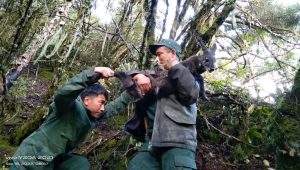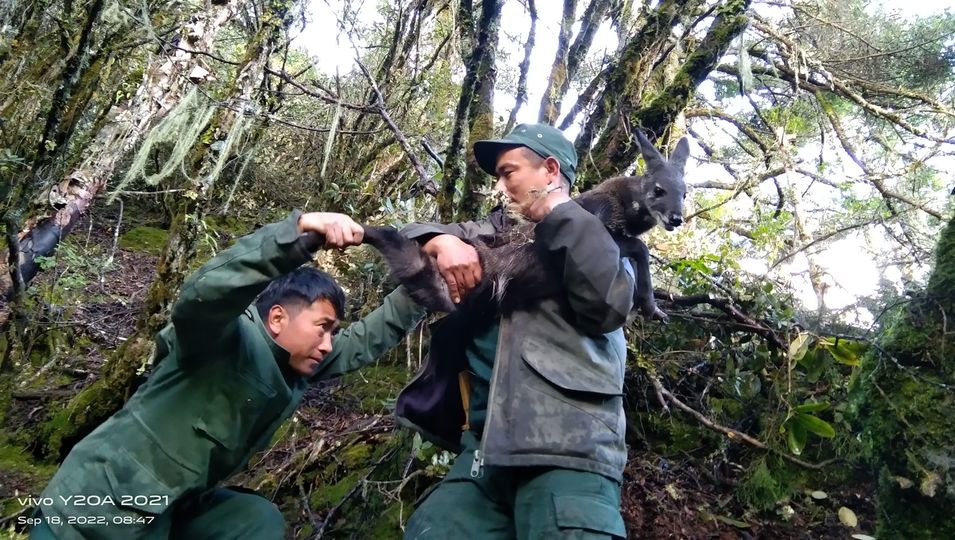 A team of JDNP forestry officials were recently on a anti-poaching patrolling in Lunana. The patrol was conducted using SMART tools, an app-based tools which not only records the physical travel performed but also the observations made during the travel. The cold and chilly Lunana air still bites deep into the skin despite the heat generated from the exhausting walks in the forests.
A team of JDNP forestry officials were recently on a anti-poaching patrolling in Lunana. The patrol was conducted using SMART tools, an app-based tools which not only records the physical travel performed but also the observations made during the travel. The cold and chilly Lunana air still bites deep into the skin despite the heat generated from the exhausting walks in the forests.
It is usually so serene and silent in the forests, except for the soft rustling of leaves by the cold mountain air. Occasionally, a a panicky cry of a flock of Tibetan snowcock brings alive a dreamy forests. For the patrol team, they could clearly hear their own panting breath, when having to scale the mountains and vales. The mountain air which contains almost the quarter of oxygen as that of air at sea level makes it even worse.
But on that particular day, deep into the wilderness, the patrol team could faintly hear an unusual sound. They had their antennae all laser focused on the sound and the direction it is coming from. Soon, they could make it that it is sound of a fawn of a Musk Deer (Moschus moschiferus). It was making a distress call. Has it been deserted by its mother? Has it got separated during a hunt by predators? They needed to find out and find out fast.
They rushed as fast as they could, lest they get there too late. The distress call got louder. And when they eventually got to the spot, they found out that it was a yearling female musk deer fawn. It was trapped in a snare heartlessly set by the poachers.
The poachers sets up hundred of snares and traps. Although they intend to snare a male musk deer, for its valued musk deer pod, the traps and snares doesn’t do the justice. They indiscriminately snares all, including females and fawns. So, was this particular fawn.
Fortunately, the forestry patrol team made there at the nick of time. A day or two delay, would have easily cost a life of a fawn. Even more fortunate was that the fawn has sustained no life-threatening injury. The patrol team carefully had the trap undone off the fawn. They even took time to give it a affectionate hug and have photo taken. The team has also dismantled more than hundred traps from three different locations.
Similarly forestry officials embrace all the risks and challenges in the south and for that matter, in all parts of the country, often carrying out patrolling on regular basis. They not only risk their lives from retaliatory actions of the poachers but from the very wildlife they go out to save. Yet, at the end of the day, they derive satisfaction from the fact that they’ve rendered service to saving our precious natural heritage.
![]()


